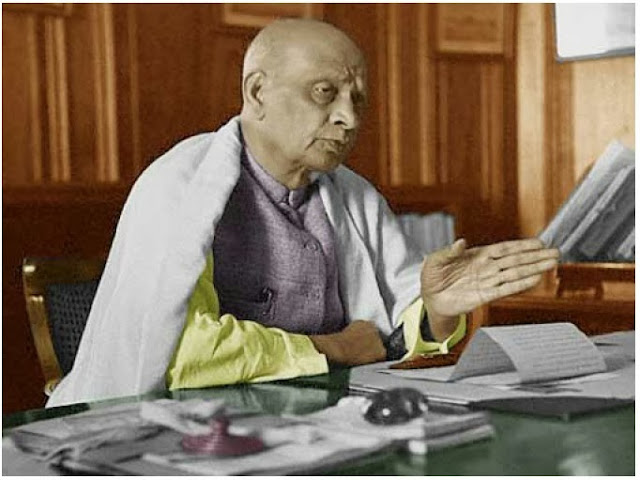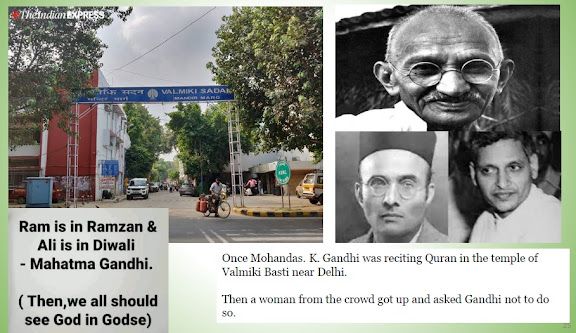Ideological Differences between Nehru and Patel
Patel wanted the Congress to be a
disciplined and democratic organisation in the making of modern India.
He raised the dual membership issue
and persuaded the Congress Working Committee (CWC) in 1948 to amend the party
constitution prohibiting the existence within the organisation of other parties
which had “a separate membership, constitution and programme”.
The result was Congress Socialist
Party’s (CSP) pulling out from the organisation. This weakened Nehru, who was
closer to the CSP faction, and exacerbated his insecurity. He consistently
attempted to impose his domination on the party organisation.
In 1950, just before Patel’s demise,
an intense struggle ensued to capture the Congress presidentship. Nehru
unilaterally declared JB Kripalani his candidate against Purushottam Das Tandon
supported by Patel.
The correspondence between Patel and
Nehru on Tandon shows their difference was ideological. Nehru criticised Tandon
for attending a refugees’ conference in Delhi while Patel found nothing in it
that violated the secular ethos. This pseudo-secularism was born out of Nehru’s
proclivity to condemn all those who disagreed with his principles and traits.
Nehru threatened to resign from CWC if Tandon was elected
President. Tandon finally prevailed with 1,306 votes as against Kripalani’s
1,092.
Next morning, when Rajaji came to
see Patel, the latter jokingly asked, “Have you brought Jawaharlal’s
resignation?”
Nehru and Patel
maintained a love-hate relationship, evident from their differences on the
question of administrative actions on Ajmer communal riots.
Patel stood firmly
with Shankar Prasad, the Chief Secretary, and opposed Nehru’s intervention
through the latter’s private secretary HVR Iyengar. It was a clash of ideas.
For Nehru, militant
minorities were to be mollycoddled even at the cost of law and order and wanted
an equal number of Hindus to be arrested to “satisfy” the minority, something
unacceptable to Patel.
Both expressed
their unwillingness to work with each other and sent their resignations to
Mahatma Gandhi.
However, the
emotions generated after the Mahatma’s assassination averted a major political
crisis and gave birth to a strange coalition of two inimical personalities.
Is it not a
travesty that Indian social science textbooks and historical writings have
deliberately omitted such an incidence of huge political and academic
significance?
The Constituent
Assembly’s pledge of building one nation with one citizenship became a victim
of Nehru’s myopia. He perpetuated the minority-majority syndrome and all those
who opposed him were disparaged and weeded out by him and his cohorts like Rafi
Ahmed Kidwai.
Pseudo-secularism became a tool to destroy the Congress
leadership.
DP Mishra aptly
described this phenomenon: “Gandhiji made heroes out of clay, but under Pundit
Nehru’s leadership they are being turned into corpses.
For full details - Link




Comments